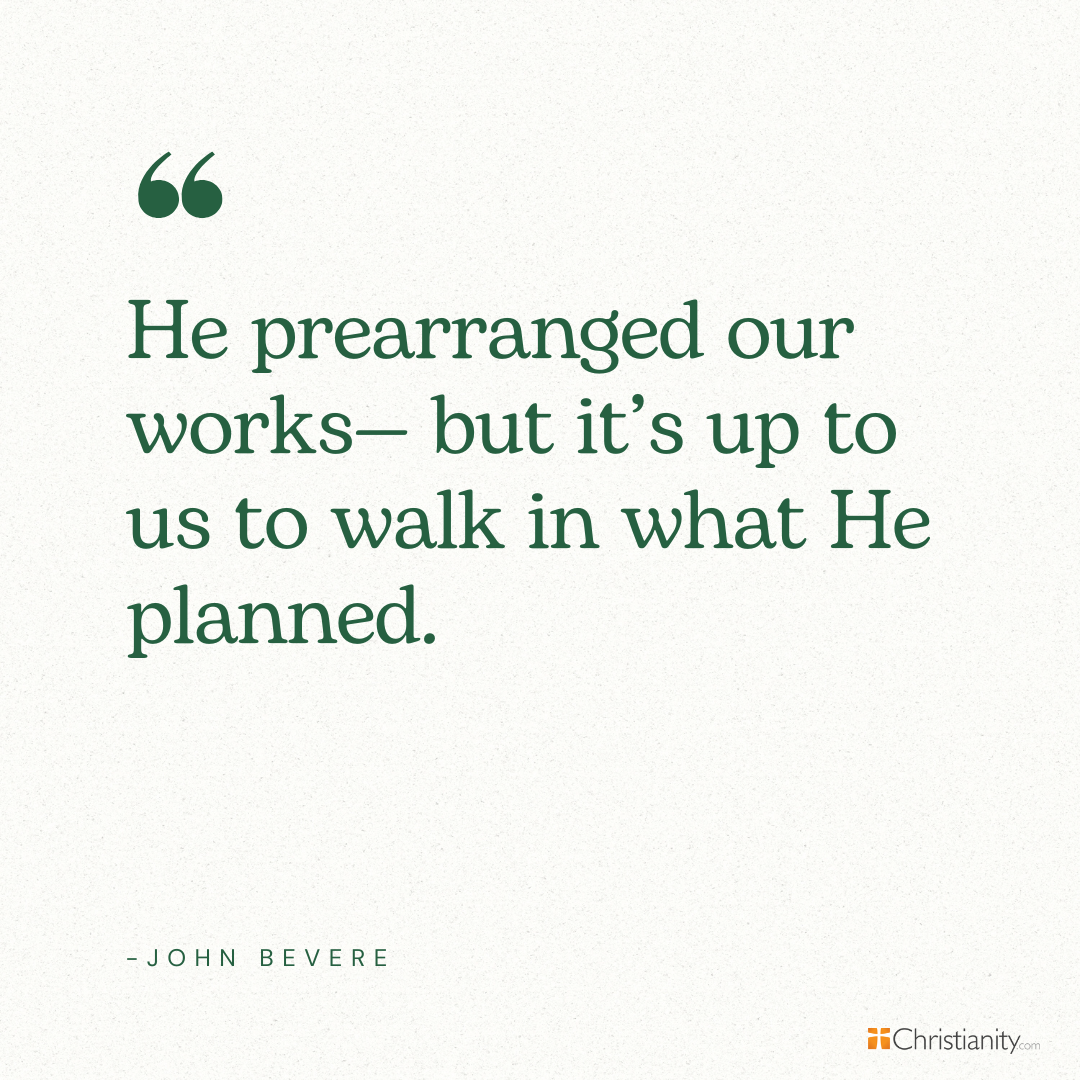God has a unique plan for your life—are you walking in it, or missing your purpose?
3 Reasons to Get Excited about God’s Plan for Your Life

Did you know that what we do for God strengthens us? Scripture declares that God planned each of our works beforehand. Ephesians 2:8-10 states,
"You were born again by the free gift of grace to be a child of God, and you were equally empowered by that same grace to do something.”
Addressing the Lord, David writes:
"You saw me before I was born. Every day of my life was recorded in your book. Every moment was laid out before a single day had passed." - Psalm 139:16
God designed things for you to do before you were born. He actually recorded these works in a book! We can only imagine how huge this book is, because every moment of our lives is recorded in it. These assignments He planned for us revolve around building His kingdom.
His deepest desire is that we fulfill His plans for our lives— but it’s not guaranteed that we will. Notice in Ephesians 2:10, the word should. It doesn’t say “that we would walk in them”; it says “that we should walk in them.” Here’s where our free will enters the game. He prearranged our works— but it’s up to us to walk in what He planned.

Regarding our specific calling, we won’t be judged on what we did, but rather on what we were called to do. There are three important things to note:
1. First, God is more passionate about you completing what He’s called you to do than you are, so He’s not going to hide His plans from you. He desires that you know your calling more than you do!
2. Second, the process of growing into the fullness of your calling is a journey, not a one-time event, so fight the urge to give in to impatience.
3. Third, Scriptural insights and experience will help you discover and develop your calling.
Consider this illustration. Suppose I’m a city planner, and I desire to build a spectacular residential, recreational, and retail complex near the city center. Being the city planner makes me the chief designer, so I organize the master plan with skilled developers and architects. In this complex, I want play areas, amusement rides, sports courts, fountains, sitting areas, and walking trails. I also want restaurants, movie theaters, shops with upstairs condominiums, and other creative accents to make our complex unique.
Once the design is complete, I then determine what contractors I’ll need to accomplish the different aspects of the master plan. I hire these various contractors and give them a timeline for their assignments. The project is set to commence.
If all the contractors do exactly what I ask, the massive project will be built seamlessly and smoothly. However, what if some of the contractors don’t make this project a priority? What if they accept the assignment but then use their skills to work on other jobs instead? What if they go fishing, golfing, or attend sporting events too often, so the project gets neglected? What if others are lazy and don’t take their work seriously? If I totally depend on these original contractors, the project won’t get done on schedule. In fact, it may never be done.
The choice belongs to the contractors in what to do with their time and talents. However, as the city planner, I’m not going to settle for major delays or the possibility of the project never being finished. Instead, I’ll bring in others to do the work.
What’s the result? The original contractors don’t get the reward of being a part of the team that builds the beautiful complex. They won’t be able to show their children, grandchildren, and friends the part they played in the beautiful focus of the city center. Their children won’t be able to tell others about what their parents accomplished. They’ll also lose the reward of being paid for the assignment.
You can see this same principle exemplified all through Scripture. God has a master plan for the building of His kingdom. Yet throughout history, God has had to work with people who haven’t fulfilled His desires. Therefore, He’s frequently had to adjust His original plan. (I speak in human terms because God knows the end from the beginning; He’s not bound to time.) “Changing” the plan is not a shock to Him. He knew what His laborers would choose beforehand. He was already prepared with their replacements.
An example of a change in God’s master plan is the judge and head priest Eli. He and his descendants were assigned to be the priests who would approach God for the people. However, a prophet sent to Eli declared:
"The LORD, the God of Israel, says: I promised that your branch of the tribe of Levi would always be my priests. But I will honor those who honor me, and I will despise those who think lightly of me. The time is coming when I will put an end to your family, so it will no longer serve as my priests." - 1 Samuel 2:30–31
Eli’s disobedience affected both him and his descendants. Had he walked honorably before God, the priesthood would have continued with Eli’s clan. Often our unfaithfulness to the call of God affects not only us, but also our descendants. How sad, how tragic! Imagine the regrets so many will have because they chose not to steward the calling or gifts upon their lives in a worthy manner.
In returning to the positive aspect, hear again that you were born on purpose and for a purpose. Your life has great value in building the eternal. It’s not the will of a mere man or woman, but determined by God Himself.
Keep thinking further about the truth that God has a unique, original plan and calling for each of us. What does this say about our heavenly Father’s character—especially about His wisdom, His compassion, His grace, and His mercy? As you reflect on this, feel free in this moment to give Him your worship and praise.
Adapted from You are Called by John Bevere. Copyright 2025 by John Bevere. Used with permission of Thomas Nelson Publishing.
Photo Credit: ©Getty Images/RyanJLane




